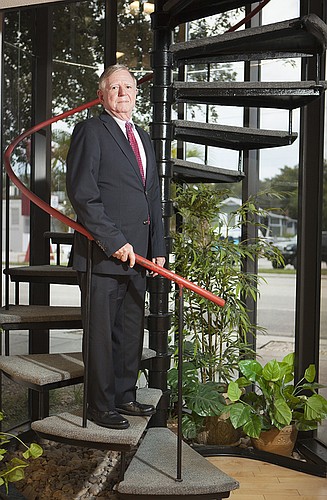- November 24, 2024
-
-
Loading

Loading

The best business decision 71-year-old CEO William Harvard ever made was providing all of the employees of his architecture firm with opportunities to participate in ownership.
They have certainly bought into it: The firm has more than 30 owners out of its 90 full-time employees.
It's a rare set-up for an industry known for short tenures, says Harvard, CEO of St. Petersburg-based Harvard Jolly. “It provides a real career path, rather than encourage jumping to different firms,” he says.
Harvard Jolly also strives to provide constant learning opportunities for colleagues. It pairs senior architects with younger architects, for instance, and hosts lunch and learns three days a week to hear about new technology and target industry changes. The company is also active in researching and publishing trends on how to address key challenges in its target markets. That includes sharing findings on industry trends, such as how to support new learning environments in school or deliver a new kind of health care, which in turn supports its business strategy.
The company, founded in 1938 by Harvard's father, has grown to eight offices throughout Florida and is one of the state's largest architectural practices. Its 2014 revenues hit $18.8 million, up 23% from $15.3 million in 2013. Recent projects include the Golisano Children's Hospital and the student arena at Florida Southwestern State College in Fort Myers, the Pinellas County Public Safety Complex, the Gulf Gate Library in Sarasota and the restoration of Sarasota High School.
The firm has specialized in health care and K-12 schools since it was founded. In more recent decades, it has expanded to government buildings and higher education. Executive Vice President Ward Friszolowski likes to think of the target markets as a “four legged stool — when one market dips, another market tends to rise, he says. The foundation of the four diverse markets spread throughout Florida allowed the company to survive the downturn, Harvard adds.
The company's expansion from St. Petersburg to multiple offices in Florida was a function of wanting to get closer to its clients and project sites. It was also seen as a way to give professionals opportunities to grow and start new offices. This kind of organic growth has proven to be the most successful, Harvard says.
The company made a short-lived acquisition in Panama City 15 years ago to try to expand and reach a market quickly. But it wasn't a cultural fit. “We learn from our mistakes,” Harvard says. “If you don't take a risk, you haven't had the opportunity to reap an award.”
In the last five years, a couple of new acquisitions have had much better outcomes. There was a Sarasota firm in 2012 and a West Palm Beach firm in 2014. The West Palm acquisition helped the company recognize it had employees with experience and connections to move into a new sector with growing need: senior living. It wasn't too far of a stretch from the company's current work in health care, Harvard adds.
Eventually Harvard would like to see the firm expand into offices out of the state, especially to continue to provide his key internal people with growth opportunities, he says. Though the company has a business plan, “we don't have a growth plan; we grow to address our clients' needs.”
- Traci McMillan Beach